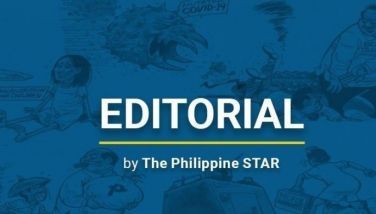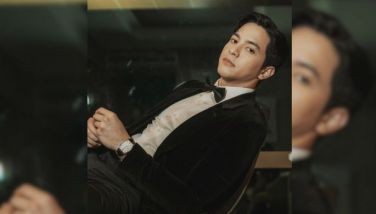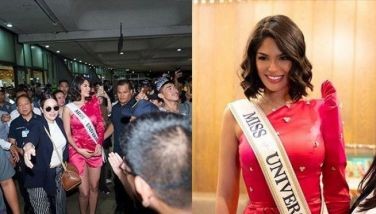Celebrating Ninoy’s birthday

Last Monday, Nov. 27, the government declared it as a special holiday. It was supposed to be a day for honoring our national hero, Andres Bonifacio. Whether by design or by coincidence, that day, Nov. 27, was the 91st birth anniversary of Benigno “Ninoy” Aquino, Jr. Although I suppose it was unintentional, we ended up celebrating the life of another hero, assassinated exactly 40 years ago.
Throughout history, the Filipino people have been searching for a great leader who possesses both charisma and the qualities of a hero. Things are no different today. Many historians have been reluctant to see history in terms of “great men.” Thinkers believe that circumstances play an important role. But there are also historians and thinkers who believe that there are certain qualities that enable leaders to mold the social forces around them.
I have often wondered what would have happened if Ninoy had survived that assassination attempt. Would he have become the great leader the Philippines continues to look up to? The German sociologist Max Weber said that in a personality-based leadership (versus institutional-based), the leader can exercise leadership in one of three ways. The first would be legal authority based on accepted laws and procedures. The second is traditional authority based on the established belief “in the sanctity of immemorial traditions” such as patriarchal or spiritual authority. This is clearly the basis for the authority of the Catholic bishops and other religious leaders. However, these two types of power are most effective when either one is combined with charismatic authority.
According to Weber, charisma is a “quality of an individual personality by virtue of which he is set apart from ordinary men and women and treated as endowed with the supernatural, or superhuman.”
Central to the qualities of a charismatic leader is the power to persuade through communications skills.
Certainly Ninoy Aquino was charismatic. I can still remember, back in 1978, before the sham Batasang Pambansa elections, in one short 30-minute television interview, Ninoy inspired a whole populace to come out in the streets and conduct a noise barrage throughout the night in the whole of Metro Manila. This was during the height of the dictatorial power of the Marcos regime.
But our country is also looking for a hero. We are looking for a person “distinguished for valor, fortitude or bold enterprise; someone regarded as having displayed great courage or exceptionally noble or manly qualities, or who has done a deed or deeds showing him to possess such qualities.”
During martial law, when almost every opposition leader had been released or exiled, Ninoy remained defiant even while suffering the worst imprisonment in Fort Magsaysay. Even the threat of execution failed to force him to collaborate with the Marcos regime or even just to promise to keep silent.
But his truly great and heroic deed was when, after a comfortable exiled life in Boston, he decided to come back to the Philippines despite the knowledge that he was risking his life.
Today, the greatest obstacle to the life of human dignity for the Filipino masses is the feudal structure that is dominant in our society. The term “feudal” refers to the relationship between a lord and his vassals or servants.
Feudalism is the prevailing structure in every aspect of our nation’s life – in politics, business, military, media and even religion. The only difference is that there are lords who treat their vassals better than other lords.
For most Filipinos, the only recourse seems to be to seek to be of value to a feudal lord. For those who refuse to become vassals, there are only three alternatives.
The first is to rebel and go to the mountains. The second is to immigrate. The third is to continue struggling for a seemingly lost cause of changing the feudal structure of the country.
The great Filipino leader must have a guiding vision, as well as the passion and courage to change the social structure of this country in spite of the opposition he will face from the entrenched elites and other interest groups currently in the ruling clique of this country.
The great Filipino leader must also have the integrity to enforce the laws of this land, the same integrity displayed by former Supreme Court Justice Adolf Azcuna when he publicly said that the proposed memorandum of agreement on ancestral domain between the government and the separatist Moro Islamic Liberation Front (MILF) is “on its face, patently illegal under our laws.”
We are looking for a leader who will truly believe that there should be no lords or vassals in this country and that all Filipinos are truly equal and must be treated equally in terms of economic and educational opportunities, and have equal access to social justice.
When Ninoy Aquino said that the Filipino is worth dying for, surely he saw each Filipino as equal to one another. Four decades after his death, the Filipino people are still looking for another Ninoy.
- Latest
- Trending



























